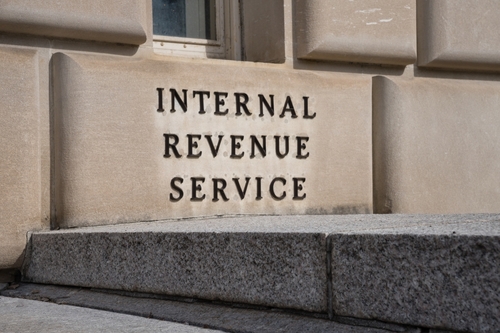An Ohio member of the U.S. House of Representatives recently voiced opposition to the Internal Revenue Service’s (IRS’s) expansion of the Digital Assets Sale and Exchanges Rule, also known as the Broker Rule.

The IRS in June finalized the Broker Rule for centralized digital asset intermediaries, such as digital asset exchanges. U.S. Rep. Mike Carey (R-OH) says that the action fully accomplished the intent of Congress in the Infrastructure Investment and Jobs Act (IIJA) to provide a clear and fair tax reporting regime for digital asset intermediaries that provide services equivalent to those provided by “brokers,” as currently defined in the federal tax code.
“Having fulfilled Congress’ intent to the extent of the authority delegated under the IIJA, the IRS should stop there,” the lawmaker wrote in a Dec. 6 letter sent to U.S. Treasury Secretary Janet Yellen and IRS Commissioner Danny Werfel.
However, recent reports from the U.S. Treasury Department’s Office of Tax Policy show that the IRS this year intends to push through additional regulations on self-custodial digital asset wallet providers and other developers of non-custodial software, according to Carey’s letter.
“This action would have substantial negative impacts not only on millions of Americans…who utilize self-custodial wallets to hold their digital assets, but also on all U.S. taxpayers and the IRS itself,” the congressman wrote.
It was also inappropriate for the IRS to impose consumer and technology regulatory policy through the tax code, wrote Carey, who argued that by expanding the scope of the final Broker Rule, the IRS would be exceeding its statutory authority while impairing its ability to process tax returns in a timely manner.
As a member of the U.S. House Ways and Means Committee, Carey wrote that the IRS should be cautious not to exceed this authority under the IIJA, and to refrain from discriminating against self-custodial wallet providers. He also suggested that if the IRS proceeds on its present course, it should at a minimum allow all digital asset brokers to benefit from the IRS Multiple Broker Exemption that traditional financial services brokers already enjoy.
“One need not be a proponent of digital assets to oppose expanding the IRS Broker Rule,” Carey wrote. “To oppose it, one need only be a proponent of fair and efficient tax administration.”